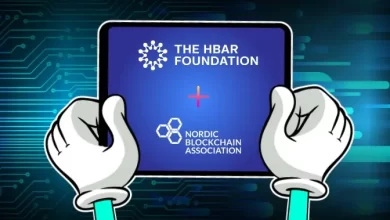Celo-Mercy Corps Ventures Empowers Kenyan Farmers via DeFi

DeFi (decentralized finance) offers new pathways to empower the financial ability of people around the world. However, over-collateral lending models do not consider the financial needs of people of all spheres. Celo Foundation believes that the improved accessibility and growth of DeFi are necessary to create wealth, and it usually depends on current and new lending models.
Considering this, Celo has recently come together with Mercy Corps Ventures to leverage Celo’s lending and borrowing protocol, Moola Market, and Kotani Pay (an African ramp provider) to develop a stablecoin lending paradigm in Kenya’s Nanyuki. Cinch Markets, an employer of this pilot, leases farmlands from small and marginal farmers and employs them to harvest high-value crops. Mercy Corps Ventures backed Cinch in this pilot.
This program’s repayment period still has a few months left, but it has already started demonstrating DeFi’s potential to empower and positively impact the rural and low-income groups. Around 68 farmers received loans of approximately $10,000 from Cinch in Kenya through text messaging and DeFi. Here is how and why it was done. Financial Tools Offered to the Excluded and Undeserved.
Individuals from low-income groups cannot always access credit through traditional ways because of the limited availability of capital from financial bodies. Due to this, some of them are forced to use alternative solutions like the savings and credit groups (Kenya’s SACCO), fintech, loan sharks, and microfinance institutions that charge exorbitant interest rates.
Current lending models are facing two main challenges – either the employers are loaded with administrative work, or the borrowers are facing exorbitant interest rates as the employer-based loans are connected with local capital and interest rates in the area.
The Celo-Cinch partnership will launch a 3-month pilot stablecoin loan in Nanyuki, Kenya. The loans from the pilot were solely for landowners and farmers hired by Cinch. It was hypothesized that employer-based loans using DeFi applications developed on Celo would offer better interest rates, feature faster delivery of loans, and reduce administrative overheads.
In April, the Cinch development team spread awareness among the Nanyuki employees to identify participants and gauge interest. Cinch selected around 100 employees from the eligible category. The participants faced two main obstacles while accessing DeFi loans – poor and unstable internet connectivity and the need to transfer stablecoin loans to M-Pesa (one of the largest mobile money services in Kenya). Both Celo and Kotani Pay could solve these problems.
Employing the USSD system of Kotani Pay, the borrowers could interact with the Celo Defi blockchain and access loans through their mobile phones via text messages instead of smartphone apps. In addition, Kotani Pay also completed KYC requirements for every pilot participant using the information they entered. They created individual blockchain addresses on Celo, linking every participant’s phone number to their accounts on M-Pesa.
Although the pilot’s loan distribution segment is complete, Celo looks forward to accumulating the final statistics on every aspect in the next few months. Around 68 employees of Cinch took loans of about $9697 via Moola Market at an annual rate of interest of 8%, which was substantially lower than the interest rates of other alternatives in Nanyuki (approximately 20% or more at the time).
Each participant in this program was educated on calculating the loan and interest rate by entering their monthly salary. Some of them also recognized that if the tenure of the loans was increased, the repayment amount per month was reduced. It allowed them to apply for larger loans with the same monthly income. In addition, around 97% of the employees at Cinch could successfully access the loans through the system provided by Kotani Pay. However, only two employees complained about facing issues because of the lack of credit needed to access their network and M-Pesa accounts.



